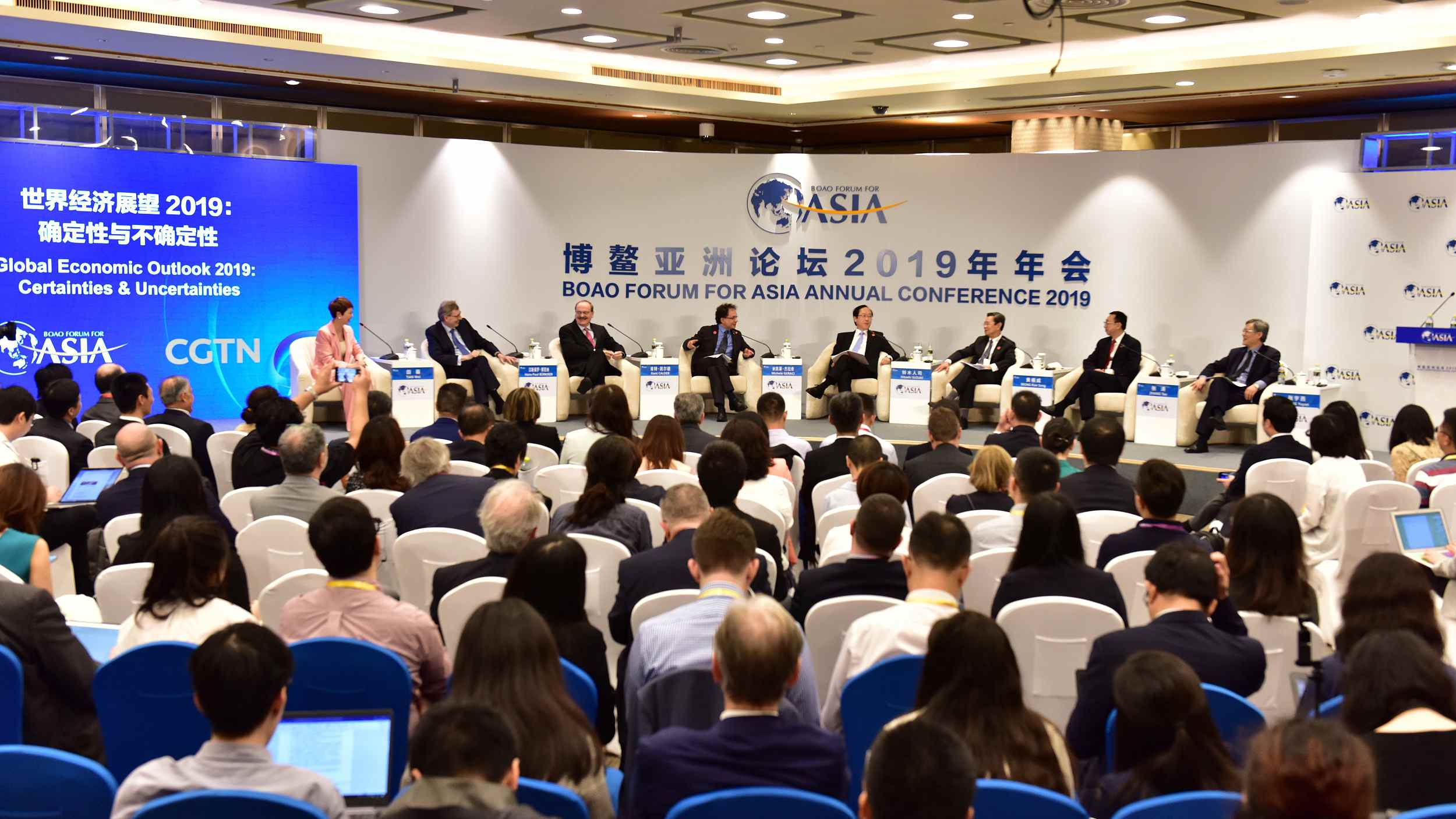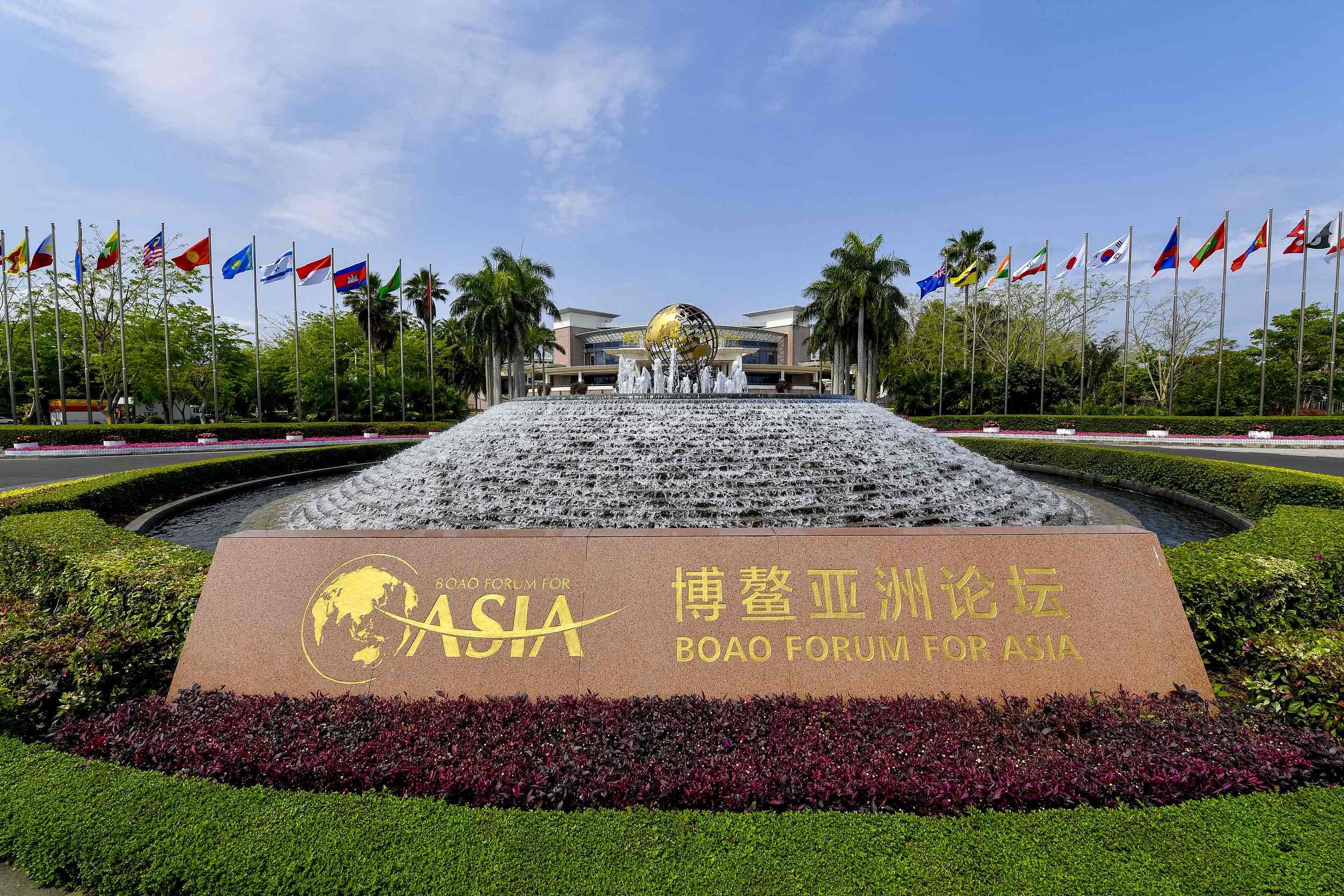
Economy
21:34, 26-Mar-2019
Experts polled on global uncertainties at Boao
Yang Chengxi

Day one of the 2019 Boao Forum kicked off with Common Development for Asia in mind. But the first round of discussion after the release of four major reports this morning was one on the global economy. Both the World Bank and the International Monetary Fund have lowered global growth forecasts for the next two years. What do the experts say?
Panelists at the World Economic Outlook 2019 session were polled on what they think the world has more of right now: certainties or uncertainties. The result was almost 50-50.
Hans-Paul Burkner, chairman of Boston Consulting Group, falls in the certainty camp. He said global recovery is strong and we should not read too much into the lower forecasts. But one of those from the uncertainty camp was none other than the deputy managing director of the IMF.
He laid out what he believed were two of the biggest uncertainties of the day: one, trade policy tensions, which will be bad for Asian economies if not handled well, and two, the policy tightening of major global central banks, which will have a substantial impact on financial markets.

VCG Photo
VCG Photo
While panelists agree that policymakers should “do the right thing,” some say it is not always easy, with polarizing domestic politics in many countries, leading to scenarios like Brexit.
Europe's uncertainty level is high, according to Michele Geraci of Italy's Ministry of Economic Development. But he said one certainty for Europe is deeper cooperation with China.
Italy became the first G7 country to join China's Belt and Road Initiative during Chinese President Xi Jinping's visit there. Geraci said that will greatly benefit the commercial relationship between the two countries.
The last point of discussion was future technologies like AI. Bank of Japan's Hitoshi Suzuki said he is concerned about technology's power to take away people's jobs. But others believe it's actually a good thing for countries with a decreasing population.
Last but not least, panelist Zhang Yuyan with the Chinese Academy of Social Sciences said as China's labor cost increases, robots and AI could help keep China's massive manufacturing sector running at a low cost.

SITEMAP
Copyright © 2018 CGTN. Beijing ICP prepared NO.16065310-3
Copyright © 2018 CGTN. Beijing ICP prepared NO.16065310-3